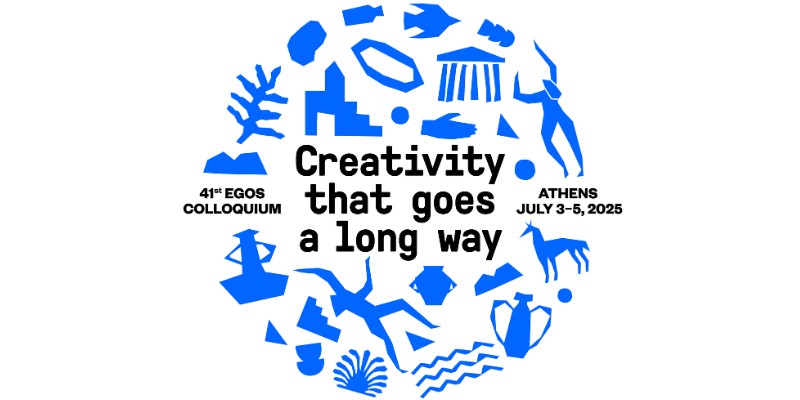Sub-theme 39: Innovating Intersectionality: Creative Frontiers for Epistemological and Methodological Perspectives [-> hybrid]
Call for Papers
This hybrid sub-theme is interested in the creative possibilities offered by feminist and intersectional research
practices, with the aim of providing management and organizational scholars with novel and useful epistemological and methodological
approaches to help make sense of, theorize, and confront labour and workplace inequalities. Discussions about intersectionality
continue to problematise method (Rodriguez, 2018; Misra et al., 2021). Christoffersen and Emejulu (2023: 631) note that what
intersectionality is understood to mean relates to how it is applied. In this respect, while there is general agreement from
intersectionality scholars that multiple identities are implicated in unequal positioning within systems of domination, the
functioning of their intersection and the overall way this implication operates remains a methodological challenge.
As we continue to grapple with how to empirically capture intersectional complexity, as well as its resulting positions
of privilege and disadvantage in their situatedness and shifting nature, two points need methodological attention. First,
the understanding of the purpose of intersectionality in terms of what it gives us, and second, how to translate that understanding
methodologically. Collins (2019) argues that methodological practices are “vehicles” for intersectional theorizing (p. 142)
yet, to date, discussions of how to study intersectionality and the ontological and epistemological consequences related to
methodological choices have been sluggish to keep pace (McCall, 2005; Rodriguez, 2018). This sub-theme is interested in addressing
this gap, encouraging creative perspectives to methodology that enliven and embody intersectional theories and practice (see
Collins, 2019; Davis, 2014; Rebughini, 2021).
As calls continue to engage with the ontological imagination
of intersectionality to achieve socially just and diverse futures (Watson-Singleton et al., 2023), we seek to leverage curiosity,
novelty, and usefulness to explore new and creative avenues in intersectional research that help us deliver on its transformational
potential. We welcome submissions focused on intersectional approaches that unite the imaginative exploration of methodology
to theory, bringing innovative creative insights to analyse the production and reproduction of labour and workplace inequalities.
Submissions might consider addressing questions such as:
How does the relationship between intersectional theorizing, epistemology, and researchers’ methodological choices shape research on labour and workplace inequalities?
What innovative methods can be employed for collecting and analyzing intersectional data?
What innovative methods can be employed for collecting and analyzing data intersectionally?
How could a focus on intersectionality allow us to explore the agency of both researchers and research participants and grasp it in its situatedness in time and space?
How might creativity be used in research methodologically to explore intersectionality?
How might researchers navigate ethical considerations when using intersectionally-sensitive methodologies?
How can researchers methodologically tackle the co-optation and whitewashing of intersectionality?
How are advancements in big data technology and AI influencing the way researchers approach intersectionality?
To support
inclusivity, this sub-theme is a hybrid one. To ensure active participation and engagement, the seven sessions will aim to
mix both onsite and online participants. We look for opportunities to pair onsite participants with remote discussants and
vice versa to connect sub-theme participants through ideas and rich discussion.
References
- Christoffersen, A., & Emejulu, A. (2023): “‘Diversity Within’: The Problems with ‘Intersectional’ White Feminism in Practice.” Social Politics: International Studies in Gender, State & Society, 30 (2), 630–653.
- Collins, P.H. (2019): Intersectionality as Critical Social Theory. Durham, NC: Duke University Press.
- Crenshaw, K. (1989): “Demarginalizing the Intersection of Race and Sex: A Black Feminist Critique of Antidiscrimination Doctrine, Feminist Theory and Antiracist Politics.” The University of Chicago Legal Forum, 1989 (1), Article 8, 139–167.
- Davis, K. (2014): “Intersectionality as Critical Methodology.” In N. Lykke (ed.): Writing Academic Texts Differently: Intersectional Feminist Methodologies and the Playful Art of Writing. Abingdon, UK: Routledge, 17–29.
- McCall, L. (2005): “The complexity of intersectionality.” Signs, 30 (3), 1771–1800.
- Misra, J., Curington, C.V., & Green, V.M. (2021): “Methods of intersectional research.” Sociological Spectrum, 41 (1), 9–28.
- Rebughini, P. (2021): “Agency in intersectionality. Towards a method for studying the situatedness of action.” Socio – La nouvelle revue des sciences sociales, 2021 (15), 189–205.
- Rodriguez, J.K. (2018): “Intersectionality and qualitative research.” In: C. Cassell, A. Cunliffe, & G. Grandy (eds.): The Sage Handbook of Qualitative Business and Management Research Methods. London: SAGE Publications, 429–462.
- Watson-Singleton, N.N., Lewis, J.A., & Dworkin, E.R. (2023): “Toward a socially just diversity science: Using intersectional mixed methods research to center multiply marginalized Black, Indigenous, and People of Color (BIPOC).” Cultural Diversity and Ethnic Minority Psychology, 29 (1), 34–42.


